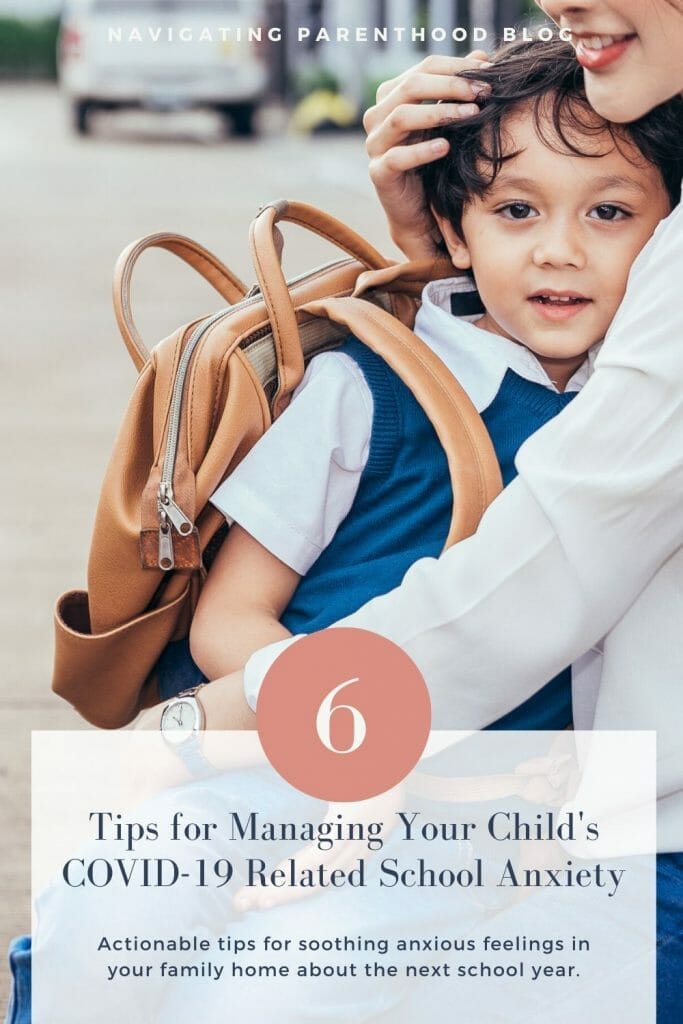6 Tips for Managing Your Child’s School Anxiety
As we begin the process of re-opening and relaxing restrictions on physical distancing after sudden closure due to the COVID-19 pandemic, there are ongoing discussions and questions regarding what plans will be put into place for students for the new school year. This growing list of unanswered questions can be anxiety-provoking, especially for our kids. In our clinical practices, we’re beginning to notice the significant increase in the number of youth with anxiety related to the current pandemic. As parents, it’s important to know how to recognize if your child is struggling with anxiety — especially anxiety related to returning to school amidst a national health crisis — and ways you can help. Here are 6 tips for managing your child’s school anxiety related to COVID-19.

1. Stay in the know
Stay up to date and informed with factual information about COVID-19 in your area. Obtain accurate information from credible sources regarding the novel coronavirus and its prevalence and rate of growth in your area. Information is power and will help you make informed decisions for you and your family.
Stay in the know regarding up-to-date announcements and plans for your child’s school. Regularly monitor communications from your child’s school regarding upcoming plans for the new school year (and summer class programs). Many schools and universities are making decisions as they receive up-to-date information from scientists, epidemiologists, and educators. Be patient and flexible. Model these qualities for your child. Oftentimes, worrying about the unknown creates more stress and anxiety.
2. Practice safety protocols
Emphasize best practices for reducing infection risk. Students returning to class will likely be asked to wear masks, maintain social distance, practice good hygiene, and have their temperature daily. Implementing these measures with your child while at home will help him to continue to use them while back at school.
3. Listen to your child
Ask your child about his or her preferences, worries, or concerns about going back to school. If your student is mature enough to weigh in on this matter, explore his or her thoughts. Many students not only report that they miss seeing their friends and teachers regularly, they also much prefer traditional learning models. Overwhelmingly, most students express that they want to return to school campuses. For those students who have concerns about returning to campus, explore these reasons.
4. Advocate for your child
Be informed regarding your student’s rights. Review your state and federal guidelines and laws regarding absenteeism and a failure to attend school in the midst of a pandemic. Should your child not return to school if it re-opens, is continued distance learning permissible? Are extenuating circumstances required? These are important questions to consider prior to the start of the new school year.
5. Plan other options
Come up with a Plan B. Discuss a plan and also a back-up plan. If you decide to send your child back to class, what will be the plan if school doors unexpectedly close again in the fall? Having a couple of well-thought-out plans can help to reduce anxiety and worry for you both now and in the future.
6. Demonstrate self-care
Don’t forget to take care of yourself and keep your own anxieties in check. Managing your anxiety helps in managing your child’s anxiety, especially in these uncertain and challenging times. Patience, self-care, and flexibility are important tools to have in your parenting toolbox. How you manage your anxiety impacts the emotional health and wellness of your child.


Dr. Carlin Barnes and Dr. Marketa Wills — two Harvard-trained psychiatrists — are the co-authors of the newly published, groundbreaking book “Understanding Mental Illness: A Comprehensive Guide to Mental Health Disorders for Family for Family and Friends” and founders of Healthy Minds, LLC.

